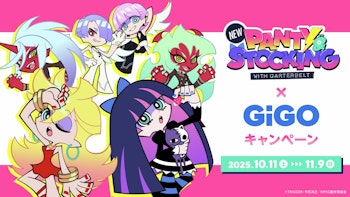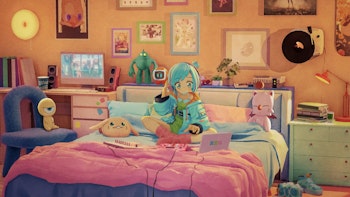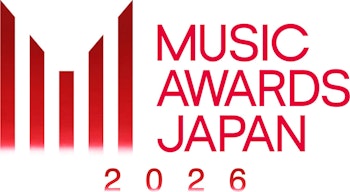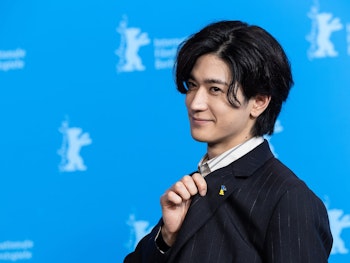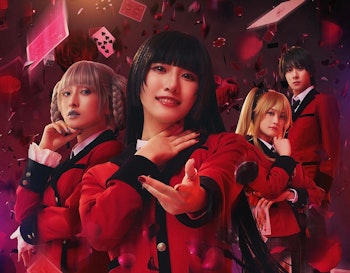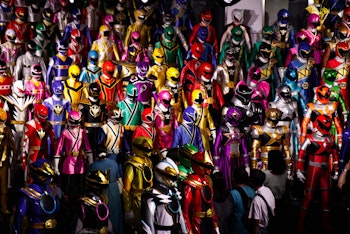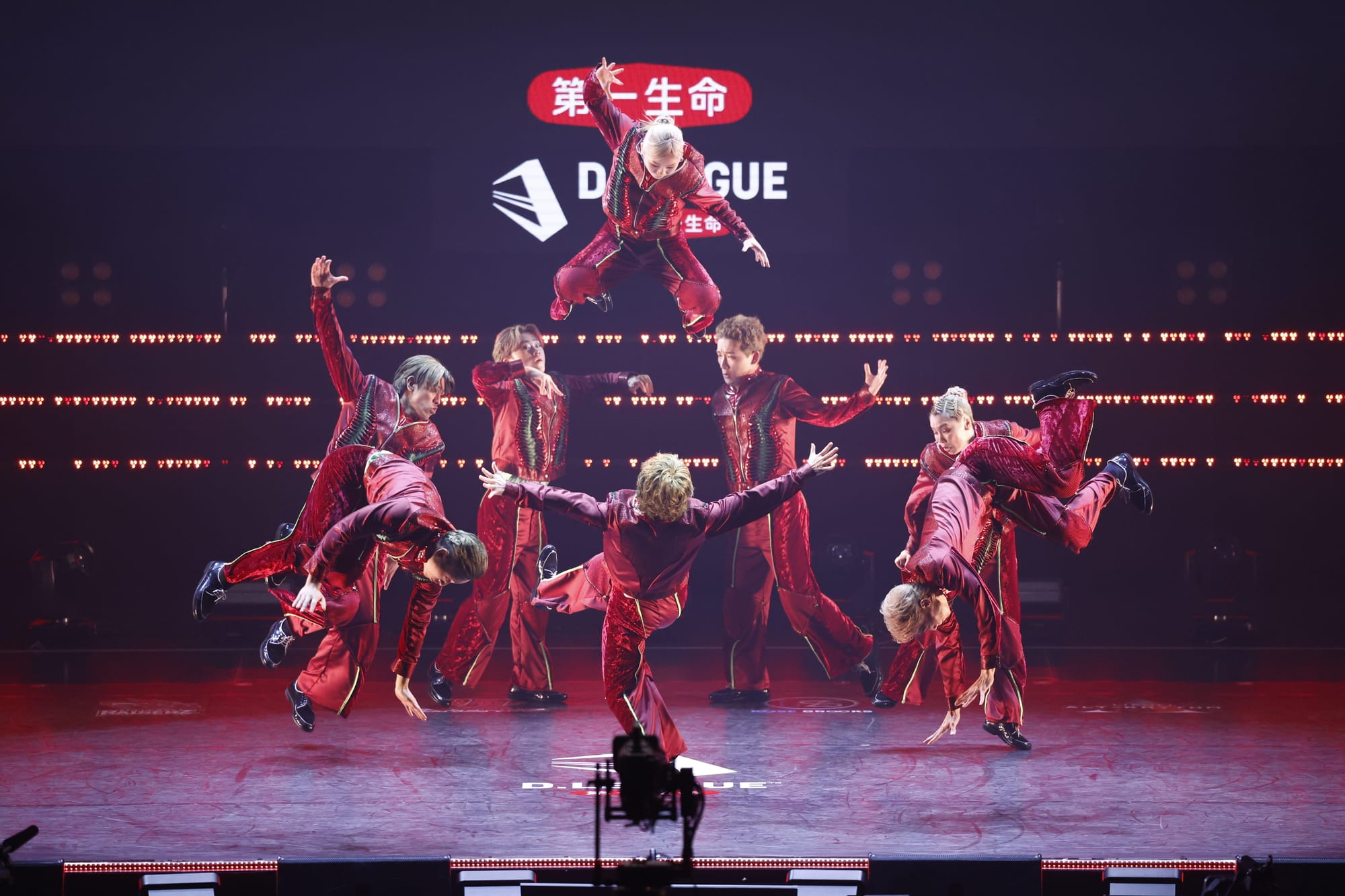
The moment the D. League hooked me arrived well before the dozens of dancers competing for that year’s championship took the stage. It was outside of Tokyo Garden Theater, on a warm summer night, with seemingly hundreds of people waiting for the finale of this season to play out. Many wore shirts or even jerseys supporting one of the six teams taking part on June 19, with others sporting signboards and other cheering paraphernalia.
This atmosphere felt akin to high-level sports…with touches of 21st century fandom weaved in.
It’s this intersection making the D. League such an intriguing idea in modern Japan. Founded in 2021, it’s the first professional dance league in the world, with the recently wrapped up 2024-2025 season featuring 14 teams. On a surface level, it’s a savvy opportunity to celebrate a physical activity often cast as behind something else. Dancing is central to pop music and visual entertainment, but often the people dedicated just to that art fail to receive attention. They are, figuratively and often literally, back-up.
Not so with the D. League. At the Championship — this writer’s first in-person experience with it, invited by people working with the league — matches found teams taking turns performing precise and physical routines set to original music. In the context of a concert or even theater production, dancing needs to be good but unobtrusive for the service of the performer actually in the spotlight. Yet here, all focus could fall right on the demands the medium requires, and simply watching the dancers execute their choreography wowed, while underlining the athleticism at its core.
As someone coming into it all fresh, the most surprising element of the competition was the clash of styles and sound. Like any professional sports organization, every team in the D. League boasts its own strategy and ethos when it comes to play.
Regular season winner CyberAgent Legit leaned towards electronic and dance-pop compositions, while runner-up Kadokawa Dreams (the Golden State Warriors of the D. League, based on fan support) highlighted a style and sound shaped by traditional Japanese culture. Some emphasized swing, others the pulse of Jersey Club. Theatrical bunch Septeni Raptures, meanwhile, relied heavily on props, with its quarter-final winning performance built around a laboratory motif (complete with glowing beakers) and its semi-final effort featuring ladders, traffic cones and a little truck.
As a competition, the Championship of the D. League delivered great action via a format most similar to figure skating. Teams developed and performed the equivalent of short programs, with judges deciding which squad met criteria such as “choreography” and “technique” best. Save for a fan vote done by smartphone app, it was the judges who determined which team moved on. While this could in theory cloud things up — like figure skating, the actual thought process of the judges isn’t clear, so you aren’t sure what they are looking for — everything seemed to go smoothly, without anything approaching a judging snafu. The athleticism of the performers could simply come through.
What elevated it, however, was the element of modern fandom surging through it. Cheering sections clutching green penlights took up certain corners of Tokyo Garden Theater. Fans held signboards cheering on specific dancers, like they were at an idol show. Outside of the main arena, supporters exchanged trading cards in a designated space or tried to win special gacha items.
The D. League makes clear a point already true about modern sports, but often overlooked — once seemingly at odds with pop music and “idol” culture, the two are largely the same now. Just see the way people idolize the likes of Shohei Ohtani, LeBron James or Max Verstappen. On the other side, anyone who has spent time in the trenches of modern music fandom understands that many supporters of groups basically approach things like charts and rankings as sports (albeit with one of the least reliable governing bodies going in Billboard).
At Tokyo Garden Theater, this meeting point between the two becomes clear. It’s sports based on the dexterity and skill required to pull off any of the moves shown on stage, but everything surrounded it felt like a reflection of oshikatsu culture (with the presence of companies such as Avex and LDH — the latter set to debut its own team for next season — underlying the pop foundation of it all).
It’s entertaining and engaging, but also a reflection of where sports and entertainment exist in the 2020s…and where they’ll go in the future.
On June 19, though, the focus falls on what is a familiar story for the burgeoning D. League. The final showdown is between Legit and Dreams, happening for the third year in a row. Whereas the previous two titles were won by Kadokawa, the ‘24-25 championship goes to CyberAgent in a romp, the group finally getting to the top. They respond appropriately, with excited cheers, hugs and tears. Director FISHBOY — a dancer himself with a long history of helping shape pivotal choreography for J-pop — chokes up in accepting the trophy.
It’s a visceral moment fitting of a championship win, and an appropriate ending to an event where, for all the entertainment and fandom flourishes, the competition itself ends up the point.


